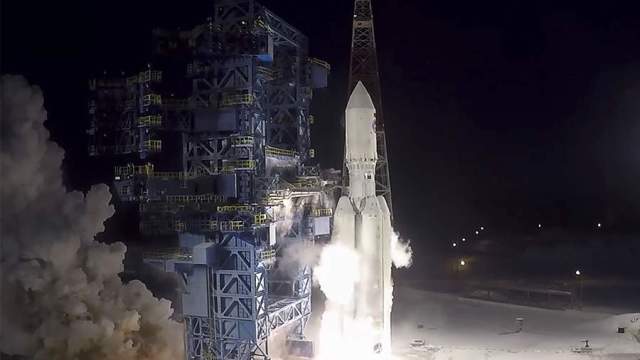Roscosmos first published the composition of the future Russian orbital station on the public procurement website on Thursday, September 23.
According to the document, the state corporation has allocated funding for the development of requirements for it and its seven modules in the amount of 1.735 billion rubles.
It is noted that projects of tactical and technical tasks will be developed both for the Russian Orbital Service Station itself (ROSS) and for the modules included in it: the base unit (launched by the Soyuz-5 launch vehicle), the free-floating, gateway and transformable modules (launches by Soyuz-2 missiles), the laboratory and universal node modules and the slipway module (Angara-A5 missiles).
The development of the requirements is planned to be carried out within the framework of the research work "Applied research of problematic issues of the implementation of manned flights to the Moon, the creation of key elements and technologies, including the medical and biological direction, ensuring the safe stay and work of astronauts in lunar orbit and on the surface of the Moon in part of the work of 2022-2025," the document says.
Earlier, on August 26, the general director of Roscosmos, Dmitry Rogozin, said that the Russian national orbital station will become the prototype of modules that will go to other planets in decades.
On July 31, during a meeting of the Presidium of the Scientific and Technical Council (NTS), the Council of Chief Designers concluded that due to the aging of a significant part of the equipment of the International Space Station (ISS), the further operation of the Russian segment of the ISS after 2024 creates additional risks.
Thus, it was proposed to complete the operation of the ISS by 2028 and create a national manned space complex in low Earth orbit — the Russian orbital Service Station. The company pointed out that the station should become an evolutionary step in the development of a program for the study and development of the Moon, flights to Mars and the implementation of innovative scientific and technical programs in space.
As the head of the state corporation noted in June, the creation of a new Russian orbital station will cost less than "tens of billions of rubles". It takes about four years to finalize the ready-made base module for the future station. After that, a new node module will be added-a berth and a module with gyroscopes. This will become the basis of the appearance of the station, Rogozin added.

